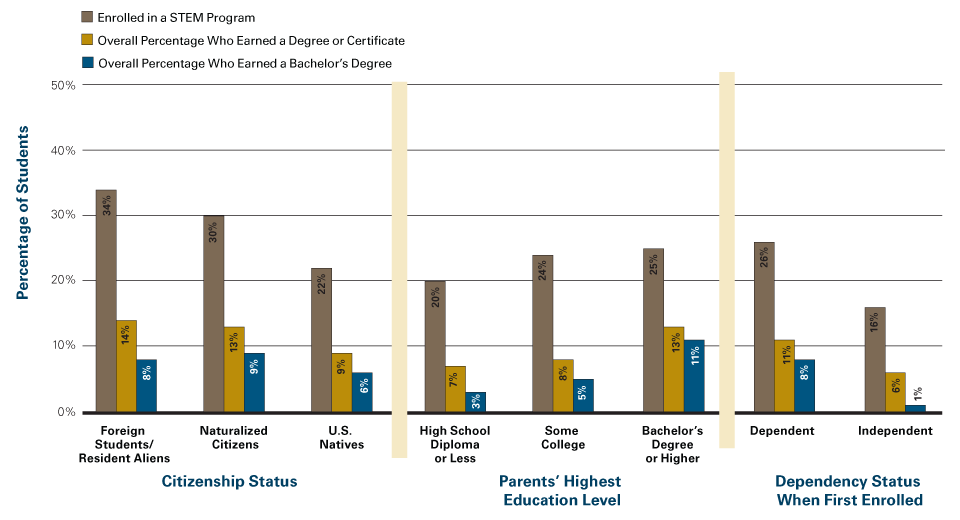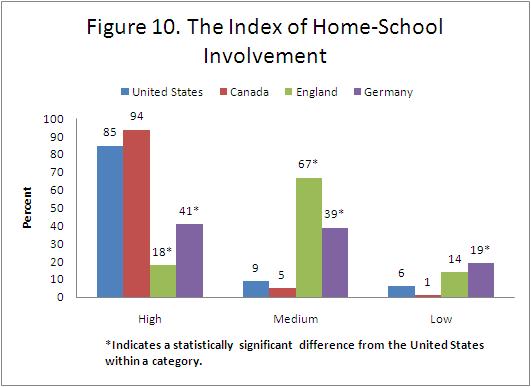As the first rough draft in this course, I was able to introduce the historical context behind my topic. Even so, the rough draft lacked major elements of a successful paper. To begin, the title merely addresses the topic, showing nothing about the controlling ideas and argumentation in the paper. Additionally, the paper was lacking analysis and a developed counter argument. Without analysis, the paper did not flow, thus the ideas I was trying to communicate might not have come across to the audience. At the bottom of the draft are also some unincorporated multi modal elements, which I did not know how to implement in my paper at the time. Despite all the mistakes, this essay was a significant first step in my argumentative process where I was able to begin developing ethos.
Haley Witzeman
Erik Kongshaug
Writing 39C
21 January 2016
Lack of Parental Involvement Affecting Schools
On television, we often view the utopian family, with a young child receiving a brown-bag lunch from his mother, getting into his father’s car and starting another day towards his bright future by going to school. Yet, this is not the case for children attending school around the country. We often see children run into trouble with their education, especially those of a lower socio-economic status or minority. Some are labeled as degenerates, refusing to listen to authoritative figures like teachers and principals. Others are not understood because “urban teachers often lack knowledge and respect of the ethnicities and cultures of the children they teach” and do not have the same opportunities to succeed as other children (McDermott). The problem with these children lies not in the school, curriculum, or teachers; rather, it lies within the lack of parental involvement.
Most problems with a lack of parental involvement are prominent to those of a lower social class. According to an article titled “High School Dropouts Blame Lack of Parental Support, Teen Pregnancy”,a report from America’s Promise Alliance claims that roughly a quarter of high school dropouts stem from a lack of encouragement from parents(Sheehy). The result of students dropping out is weaker schools, a less intellectual work force, and even what Tony Miller, deputy secretary of the U.S. Department of Education claims to be “a trillion dollars” lost. The economic difference of a family also determines the parent’s perception of what they are able to accomplish. A report title “Why Urban Parents Resist Involvement in their Children’s Elementary Education” done by two Professors of Education at The Sage Colleges, Peter McDermott and Julia Rothenberg, finds that “low-income families often perceive themselves as outside the school system and feel it is the school’s responsibility to do the teaching”, resulting in an unfair advantage for students of middle class standing, especially on a statewide or nationally evaluated scale. This aspect of the educational system can perhaps be improved by a more accepting curriculum and teachers. However, both of these are protected by fortified state laws and schools who possess a staff of teachers with tenure.
The origin of a hands-off approach in the parent-child relationship is associated with the old latin phrase in loco parentis, which translates directly to “in the place of a parent”(Sweeton). The significance of the phrase was adopted from Britain and their universities (such as Oxford and Cambridge) and indicated that a great amount of responsibility was given to schools and universities to handle the affairs of students. Yet as elements of the culture shifted, so did the expectations of the American education system. According to Phillip Lee, scholar of higher education at Harvard University, in loco parentis began to lose significance with the civil rights movements of the 1960’s, where students began gaining more freedoms such as constitutional rights and suffrage(Lee). Lee, in his piece, discusses the demands of students for social justice and the end of racism, which is perhaps an independent step away from their parents.
At the same time, President Johnson saw a visible achievement gap between students of different socio-economic standings and passed the Elementary and Secondary Education Act (ESEA). The act was targeted towards students “who live with disability, mobility problems, learning difficulties, poverty, transience and the need to learn a second language.”(OSPI) The bill contained a section called Title I which dealt directly with low income families and their children in need of extra support. With a large nation home to many of poverty, Title I has become a crucial component of multiple reforms.
Title I was later carried over into the Bush Administration’s No Child Left Behind, named after a quote said by the Children Defense Fund’s Marian Wright Edelman: “Leave No Child Behind”.This move in education reform was essentially an attempt to revamp all of the successful qualities of ESEA. The United States Department of Education claims that the four principles to advance the education system were “accountability for results, local control and flexibility, expanded parental choice, and effective and successful programs that reflect scientifically based research.” Now, the government was claiming that schools would grant more access to parents in the education of their children. In a document released by the US Department of Education titled “Parental Involvement: Title I, Part A”, regulations were set, stating that “each school must develop, jointly with parents of children participating in Title I, Part A services, a written school parental involvement policy”(US DOE). Revealing the true nature of NCLB, however, shows difficulties with this plan. Diane Ravitch, scholar of Education and author of “The Death and Life of the Great American School System”, discusses this millennial reform’s effects on school systems with great hesitance. She discusses one prominent aspect of the bill: school and test-based accountability. This system praises or punishes schools and teachers based on student results on a national scale but does not dwell in the specificities of each student’s situation. Because of this, students are ranked in a system where “the law forgot that parents are primarily responsible for their children’s behavior and attitudes” and teachers are unable to control the loss of their job in an unsteady situation. Even the parent involvement policies being created fell short of what they were expected to be. According to Ravitch, the ability for laws to be created by individual school systems were unspecific and unregulated, as they were no longer regulated by the federal government. No Child Left Behind left a structural imbalance, or an excuse, for parents to not have to regulate their child’s educational progress.
In a more recent movement, NCLB has been revamped into a new bipartisan law, the Every Student Succeeds Act. President Barack Obama signed the bill on December 10 of last year after passing a senate vote of 85-12. The bill, as President Obama states during the signing, claims that the bill will “provide every student with a well-rounded education”. Though the bill proposes great reformations on the state level, it does not fill the gaps of parental involvement. In terms of funding, according to “Summary of the Every Student Succeeds Act, Legislation Reauthorizing the Elementary and Secondary Education Act”, issues regarding child involvement are minor, as “Parent and family engagement (formerly parental engagement) efforts receive an allotment of one percent of Title I grants.” Funding, in theory, is good when given to a specific part of a reformation law. However, the ESSA allows schools to work on a more local level. For this reason, as stated in the New York Times article “President Obama Signs Into Law a Rewrite of No Child Left Behind”, the districts will receive funds and “schools will also be required to take steps to close gaps in achievement and in graduation rates between poor and minority students and other groups. But the federal government will not dictate how they must do so.” Schools will be forced to come up with a solution to minority parents, cycling back to the old idea of in loco parentis that the power to improve the students is the responsibility of the schools instead of the parents.
On the contrary, many find that parental involvement can become obsessive. One case is within the governance of the school system. The PTA, or Parent Teacher Association, is a healthy outlet for many parents to play a role in determining structural factors of their child’s school system. However, “most parents would like to play a more active role in this type of involvement, whereas most school administrators and teachers exhibit great reluctance to encourage parents to become partners in governance”(Cotton). In this case, the parent desires to get a grasp on a situation, yet they do not have the extensive knowledge of an administrator to carry through correctly. This sense of entitlement is more often seen in families of affluence rather than poverty.
Another instance of parents engaging in an inappropriate manner can be characterized by the “helicopter parent”, which is a phrase coined in the 1990’s and refers to a mother and/or father that are too closely involved in their child’s affairs. The phrase was originally intended to and still does classify parents that physically hover over their children. Because of a shift in our culture, the phrase has extended to students constantly in communication with their parents via cell phone or email. Parental involvement has often been seen as a positive source of praise and guidance in a child’s life. Yet, when going overboard, according to Indiana University psychologist Chris Meno, “The fruits of parental over-involvement include higher levels of anxiety and depression among adult children”(Meno). In other words, young adults become afraid of their independent decision making and even fall into a trap of self-loathing.
The statements in this evaluation of parental involvement are not to be seen as tearing down the progressing reformations of our nation. Indeed, reforms like the ESEA, NCLB, and ESSA make great strides in terms of inclusion and state-wide power. Parental involvement has improved, and society values the intervention of a mother and father in a child’s education. Yet, with an unclear concept of the allocation of funds, much of the parental involvement, especially in urban districts, is being turned back over to in loco parentis.


Works Cited
Cotton, Kathleen and Wikelund, Karen Reed. “Parent Involvement in Education”. School Improvement Research Series. May 1989. Web. 21 January 2016.
Davis, Julie Hirschfield. “President Obama Signs Into Law a Rewrite of No Child Left Behind”. New York Times.10 December 2015. Web. 21 January 2016.
“‘Helicopter Parents’ Stir up Anxiety, Depression”. Indiana University News Room. 2013. Web. 21 January 2016.
Lee, Phillip. “The Curious Life of In Loco Parentis at American Universities”. Higher Education in Review. 2011. Web. 21 January 2016.
McDermott, Peter and Rothenberg, Julia. “Why Urban Parents Resist Involvement in their Children’s Elementary Education”. The Qualitative Report, Volume 5. October 2000. Web. 21 January 2016.
“Parental Involvement: Title I, Part A”. No Child Left Behind. 23 April 2004.
Sheehy, Kelsey. “High School Dropouts Blame lack of Parental Support, Teen Pregnancy.” 14 November 2012. Web. 21 January 2016.
“Summary of the Every Student Succeeds Act, Legislation Reauthorizing the Elementary and Secondary Education Act.” National Conference of State Legislatures. 2015. Web 21 January 2016.
“Title I- Improving The Academic Achievement Of The Disadvantaged.” U.S. Department of Education. 15 September 2004. Web. 21 January 2016.
 icons at the top right corner of the subsection.
icons at the top right corner of the subsection.